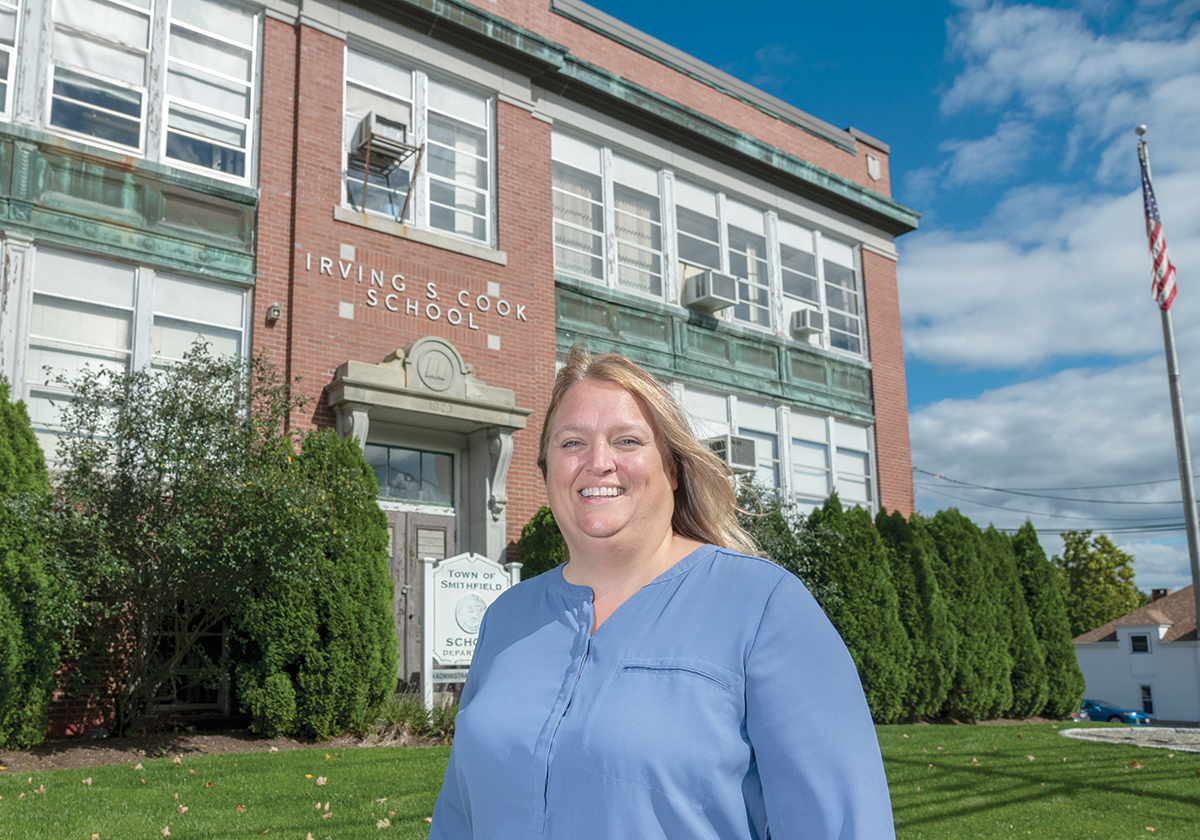Over the years, school administrators and mental health professionals have noticed a steady increase in mental health issues among young children and teens. For some school districts, this gradual incline is now a spike.
Rhode Island is no exception to this significant increase in mental health issues, according to R.I. Education Commissioner Angélica Infante-Green.
“There was a deep need for support prior to the pandemic in Rhode Island,” Infante-Green said recently. “And now we have seen that almost tripled, so we are definitely following the trends. We are seeing kids depressed. They feel isolated, some have suicidal ideation – primarily what you’re seeing everywhere else.”
Around the country, the COVID-19 pandemic is intensifying an existing rise in mental health issues among young children and teens – and in turn, highlighting gaps in funding and a shortage of human services professionals.
To meet the increased need for youth mental health services, the R.I. Department of Education received a $1.8 million grant in September for training school workers to recognize mental health issues, connecting students and mental health providers, and raising awareness around youth mental health issues.
Infante-Greene attributed part of the rise in mental health concerns among students to the difficulty many children experienced in adjusting to remote learning.
When schools first went remote in March 2020, the department realized that a lack of in-person interaction was taking a toll on students, making “a profound impact on them with their health and emotional well-being,” Infante-Green said.
‘We’re trying to be proactive in our approach.’
KATHRYN CROWLEY, East Providence schools superintendent
Eileen Crudele, director of special education at Smithfield Public Schools, also thinks that increased isolation due to COVID-19 measures accounts for more mental health issues among youths. In Smithfield, Crudele has noted a steady increase in mental health concerns among students over the years, rather than a recent spike. But the pandemic’s impact is undeniable, she said.
In addition to fewer social opportunities, the pandemic has led to more circumstances that can be traumatic for kids.
“That could be trauma of family losing a job, losing income,” Crudele said. “It could be families losing ones. It could be having to move out of one location and into a new location.”
Anxiety is the most predominant diagnosis for students in Smithfield schools, though there has also been a notable increase in students with depression, Crudele said.
As more children receive diagnoses, the district is adjusting to ramp up available resources, Crudele said.
Smithfield has a full-time psychologist at each school and employs five social workers, as well as other mental health support professionals. But staffing hasn’t increased during the pandemic.
The problem is the lack of funding for more positions, Crudele said. And there’s a growing shortage of qualified school psychologists and social workers.
Human services providers in general are in short supply. In September, a coalition of 70 Rhode Island health and human services organizations signed a letter calling for Gov. Daniel J. McKee to allocate some of the state’s $1.1 billion in American Rescue Plan Act relief to the sector.
In East Providence, school officials are still “observing and evaluating” to determine the extent of mental health issues among students, according to Superintendent Kathryn Crowley.
Crowley doesn’t think there’s been a spike at East Providence schools, though there have been “incidents here and there” as students readjust to being back in the classroom. Some kids have difficulty returning to a structured environment, which now includes additional pandemic requirements such as wearing masks.
Many parents have elevated anxiety about sending their children back to school, Crowley said, “and of course, kids take their cue from their parents; so if the parent is anxious, the child is probably anxious as well.”
As the district continues to reintegrate students into in-person learning, administrators are preparing for an increased need for mental health services.
“We’re trying to be proactive in our approach, anticipating that some children will need this extra support,” Crowley said.
The school recently hired two social workers using a portion of a $5.8 million federal grant from the Elementary and Secondary School Emergency Relief II Fund, and an additional nurse, drawing from an approximately $250,000 grant awarded by the R.I. Department of Health.
The district set aside some of the relief funding for four more social workers, in addition to the two recent hires. But as was the case in Smithfield, filling those positions hasn’t been easy.
“I don’t know where the people have gone,” Crowley said. “It’s just amazing – the social workers aren’t out there. They’re not out there.”
Jacquelyn Voghel is a PBN staff writer. Contact her at Voghel@PBN.com.


